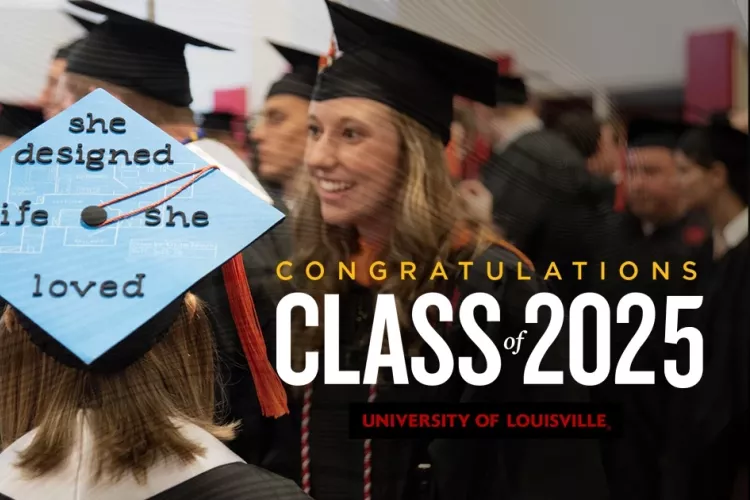Speed School camp inspires future engineers to solve big problems
October 2, 2024The enthusiastic group was small, but mighty.
Eight students from The Academy@Shawnee spent three days at the University of Louisville earlier this week getting inspired to consider a future where they own businesses based on science, technology, engineering and mathematics (STEM) fields.
[caption id="attachment_47849" align="alignleft" width="300"] Some of the camp participants gathered at the laboratory table.[/caption]
The camp was part of J.B. Speed School of Engineering Professor Sundar Atre’s entrepreneurial project, the Louisville Additive Manufacturing Business Development Alliance (LAMBDA).
Atre, Endowed Chair of Manufacturing and Materials, created LAMBDA to help under-represented minorities develop business opportunities around additive manufacturing, more commonly known as 3D printing. As additive manufacturing creates economic opportunity, Atre and his LAMBDA colleagues want to help build an inclusive community of budding minority entrepreneurs ready to take advantage of those opportunities.
Last year, LAMBDA secured a $400,000 grant from the U.S. Department of Commerce Minority Business Development Agency. Fifteen UofL students -- undergraduate, graduate and PhD -- are doing research at various levels in LAMBDA’s Materials Innovation Guild laboratory in the Shumaker Research Building.
They worked with 25 undergraduate students to design products during the spring semester. They designed 3D-printed parts to be used in manufacturing or items such as a “Smart Bandage” that can tell caregivers if it needs to be changed. The students have participated in the College of Business LaunchIt program to learn what to do -- and not to do -- to start their own businesses.
Atre used some of the grant to build a relationship with Shawnee, where he saw an opportunity to develop a pipeline of future business owners. High schoolers from Shawnee (which has students in grades 6-12) have made field trips to UofL, but the camp this week gave younger students a chance to be inspired, to test the waters of their curiosity and discover their entrepreneurial spirit.
The camp was aimed at middle school students and conducted at UofL in partnership with a minority business, Zaniac K-8 STEAM After-School Programs & Camps. Using Zaniac educational programs combined with the 3D printers and other materials in Atre’s laboratory, the students spent three days immersed in design, 3D printing, robotics and rocketry. The camp was free for the Shawnee students.
“In essence, we’ve been able to make all this accessible in their minds,” Atre said.
The students were excited to see their designs printed out as trinkets for them to hold and all said it was their first experience with 3D printing. Some said they could imagine using 3D printing in the future to solve societal problems.
“I want to be one of these people who helps stop homelessness,” said Austin Vitato, 11. Vitato, who said he has gone with his parents on service trips to impoverished nations such as the Dominican Republic, said he wants to learn how to use 3D printing to build affordable housing, something he learned through the camp is already being done. His eyes shined as he thought of the possibilities.
“It hurts my heart to see people out in the streets,” he said.
Soft-spoken 13-year-old William Frey said when he learned that technology exists to inexpensively produce clothing on 3D printers, he saw a way to help those who struggle to buy clothes, either financially or because they are “in-between sizes,” he said. Frey said he was happy to have the opportunity to participate in the camp because, “I’m always down to learn something new about technology.”
The majority of Shawnee’s students come from academically disadvantaged homes and are eligible for free lunch. State test scores in reading and math are low, but the school is well known for its aerospace engineering program.
As a UofL Signature Partnership Initiative school, Shawnee has benefited from many UofL partnerships over the years with the goal of improving the quality of life and economic opportunities for residents of West Louisville, a traditionally underserved area of the community. The Signature Partnership program is a university initiative to improve the education, health and social status of those who live in Louisville’s urban core.



